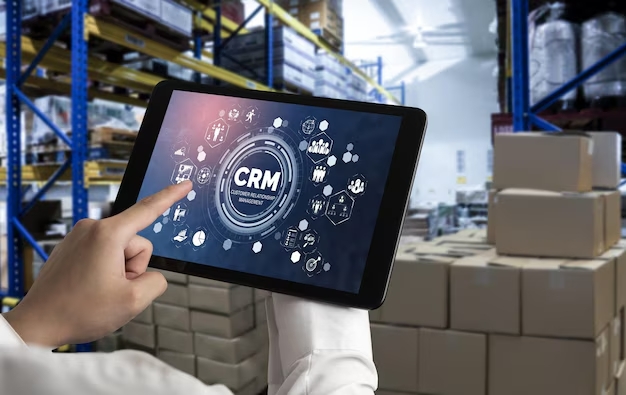The Importance of CRM in Freight Forwarding


You ever try to track a shipment, follow up with a client, and remember who you quoted what to last Thursday—all before your first coffee? Yeah. Welcome to freight forwarding. This industry moves fast. Containers get rerouted, rates change mid-conversation, clients ghost and then reappear needing an urgent booking... yesterday.
And yet, somehow, you’re expected to juggle it all with a few spreadsheets, 300 emails, and that one team chat where someone might have written down the pickup date. This is where a good CRM system earns its keep.
CRM: Not just for sales teams anymore
First things first: forget the suits-and-ties image. CRM (Customer Relationship Management) in freight forwarding isn’t about pumping out cold emails or tracking pipeline metrics just to impress someone in finance. It’s about keeping your cargo, your clients, and your sanity on track. Because when you’re handling multiple shipments for multiple clients across multiple time zones... details fall through the cracks. Fast.
What’s actually at stake?
- Let’s talk about what happens when you don’t have a proper CRM setup:
- You quote a client twice—for different rates. Oops.
- Someone else on your team replies to the same client. With different info.
- You forget to follow up on a customs doc, and now the container is sitting at port. Tick, tick, tick.
- A loyal client hasn’t heard from you in weeks—and is now asking your competitor for quotes.
None of this is rare. But it’s all avoidable.
So what should a freight CRM help you do?
Glad you asked. A solid CRM in our world should feel less like a sales database and more like a control tower. At a glance, you should be able to see:
- Every shipment you’ve ever done with a client
- Their preferences (yes, some of them always want updates by WhatsApp, not email)
- Quote history—when you sent it, what you offered, and if they actually responded
- Follow-up reminders (because we all forget things when juggling 30 shipments)
- Notes from the last conversation—like the fact they hate delays but love early pickups
It’s not magic. But it can feel like it when you’ve got the info before the client even asks.
What happens when it works?
Here's the thing—most clients don’t switch forwarders because of price. They switch because communication breaks down. Someone drops the ball. No one follows up. Things feel... messy. A CRM doesn’t just help you look more professional.
It helps you be more professional. You respond faster. Remember more. Miss less. You follow up at the right time, with the right info, in the way that works for them. It shows clients they can trust you—not just to move boxes, but to care about their cargo.
One last myth: “We’re too small to need a CRM.”
Honestly? If you’ve got more than two clients and more than one person handling shipments, you’re already managing complexity. Without a system, you’re just doing it manually (and probably painfully). A CRM doesn’t need to be massive or expensive to help.
Even a lean, simple setup can save you hours each week—and a few awkward apologies. A CRM won’t fix every problem—but it will make the chaos manageable. It’s like a second brain that doesn’t forget stuff. And in this business, that’s worth its weight in gold.

